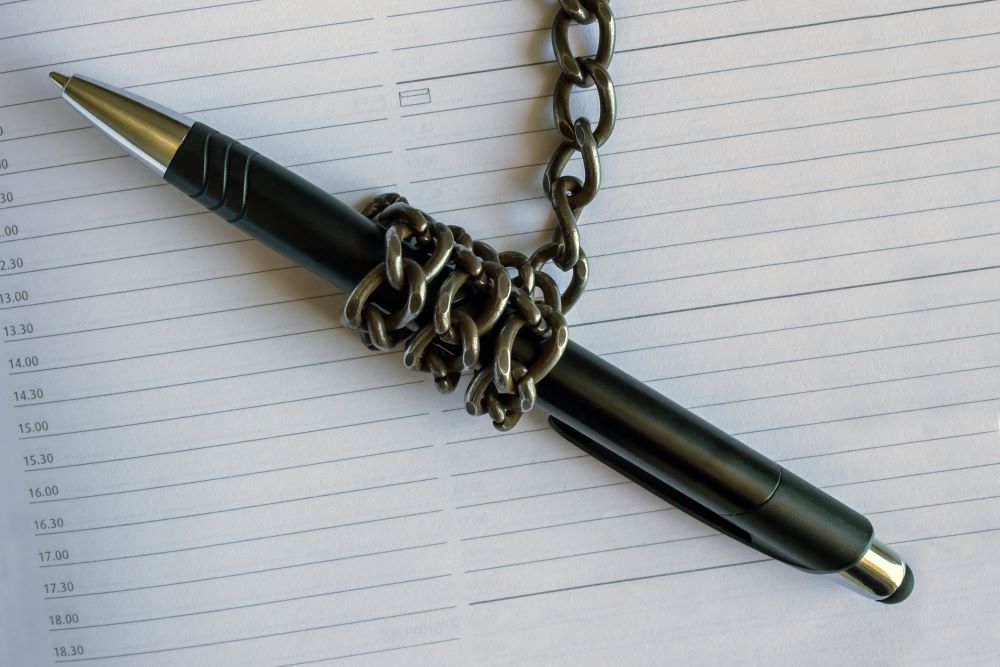
Do not shoot the messenger" is an idiomatic expression that means not to blame or punish the person who delivers bad or unwelcome news. The phrase originates from the ancient practice of using messengers to deliver important messages, such as declarations of war or death sentences. In some cases, the messenger was killed or punished for delivering the message, even though they were only doing their job.
Today, the phrase "do not shoot the messenger" is often used metaphorically to remind people not to blame the person who brings bad news or information. For example, if an employee has to deliver news of layoffs, it is not their fault, and they should not be blamed or punished for delivering the message.
In the context of protecting journalists' freedom, the phrase "do not shoot the messenger" takes on a broader meaning. The fundamental foundations of journalism posit the profession to inform, educate and entertain the masses. Journalists are messengers of information, and it is not their fault if the information they report is controversial or unpopular. They should not be punished or threatened for doing their job of providing accurate and truthful information to the public.
Journalists often face risks and dangers for reporting on sensitive issues, but it is essential to remember that they are not responsible for the events they report on. By protecting journalists' freedom, we can ensure that they can do their job without fear of retaliation, and we can continue to benefit from the important role that they play in our society.
In the month of March alone, 25 local and international journalists have been targeted by both state and non-state actors since the onset the mass protests led by the opposition party. From physical harm, harassment to loss of equipment, the members of the fourth estate have been targeted by police, goons and protesters.
Twenty of these reported cases of attacks, harassment and arrest of journalists was documented on Monday, March 27.
Speaking to the media, Media Council of Kenya Director for Media Training and Development Victor Bwire told the BBC that six journalists suffered serious body injuries on Thursday.
He said some of the journalists had their phones and equipment stolen or vandalized seemingly for purposes of destroying photographic evidence of police excesses during the protests.
At the height of Covid-19, attacks and harassments on journalists hit an all time high with institutions such as Article 19 and the Media Council of Kenya reporting over 50 cases police brutality on journalists. As at the month of October 2020, there were at least 48 reports of attacks against journalists – with 22 of them having occurred within six weeks of the first announcement of the Covid-19 in the country.
Journalists are often the first to witness and report on important events that affect society. They provide vital information that helps people make informed decisions about their lives and hold those in power accountable. For example, investigative journalists may uncover corruption, fraud, or abuse of power by public officials or private companies. They may also report on human rights violations, environmental disasters, and conflicts around the world. By shedding light on these issues, journalists help create a more informed and engaged society.
The Profiteers done by John Allan Namu of Africa Uncensored, for example, exposed the looting and plunder of natural resources in parts of Sudan and the Democratic Republic of Congo. Gangs Galore by Purity Mwaambia of Citizen TV exposed the rot among several police officers in the country who would ‘sell’ their handcuffs or guns to anyone for a fee.
Protecting journalists' freedom is essential for ensuring that they can continue to report on important issues without fear of retaliation. Governments and other organizations must respect journalists' right to gather and disseminate information and protect them from harassment and violence.
One way to protect journalists is to establish laws that safeguard their rights. Many countries have laws that protect freedom of expression and the press, but these laws are not always enforced. In Kenya, Article 34 of the Constitution provides the media in Kenya with the freedom to inform and report on happenings in the country without fear, favor or intimidation.
In some cases, laws may be used to target journalists who report on sensitive issues. The Constitution of Kenya has over a dozen laws that inhibit the free working of the media – these include (but not limited to) The Defamation Act, Computer Misuse and Cybercrimes Act, Official Secrets Act, Copyright Act – to mention but a few.
Another way to protect journalists is to provide them with training and resources to stay safe while working in dangerous environments. Journalists covering conflicts, protests, or natural disasters may face physical dangers, including gunfire, explosions, or collapsing buildings. They may also encounter verbal harassment or be detained by security forces. Providing journalists with safety training, protective gear, and emergency communication devices can help them stay safe while reporting on dangerous situations.
Moreover, it is essential to raise awareness of the importance of protecting journalists' freedom. Media organizations, civil society groups, and governments can work together to promote the value of a free press and the critical role that journalists play in a democratic society. By raising awareness of the risks that journalists face and the importance of protecting their rights, we can build public support for measures that safeguard journalists' freedom.
In conclusion, protecting journalists' freedom is crucial for maintaining a free and informed society. Journalists play a critical role in holding those in power accountable, exposing wrongdoing, and providing vital information to the public. Yet, they often face threats, harassment, and violence for doing their jobs. Governments, media organizations, civil society groups, and individuals must work together to ensure that journalists can work safely and without fear of retaliation. By protecting journalists' freedom, we can safeguard the essential role that they play in our democracy.